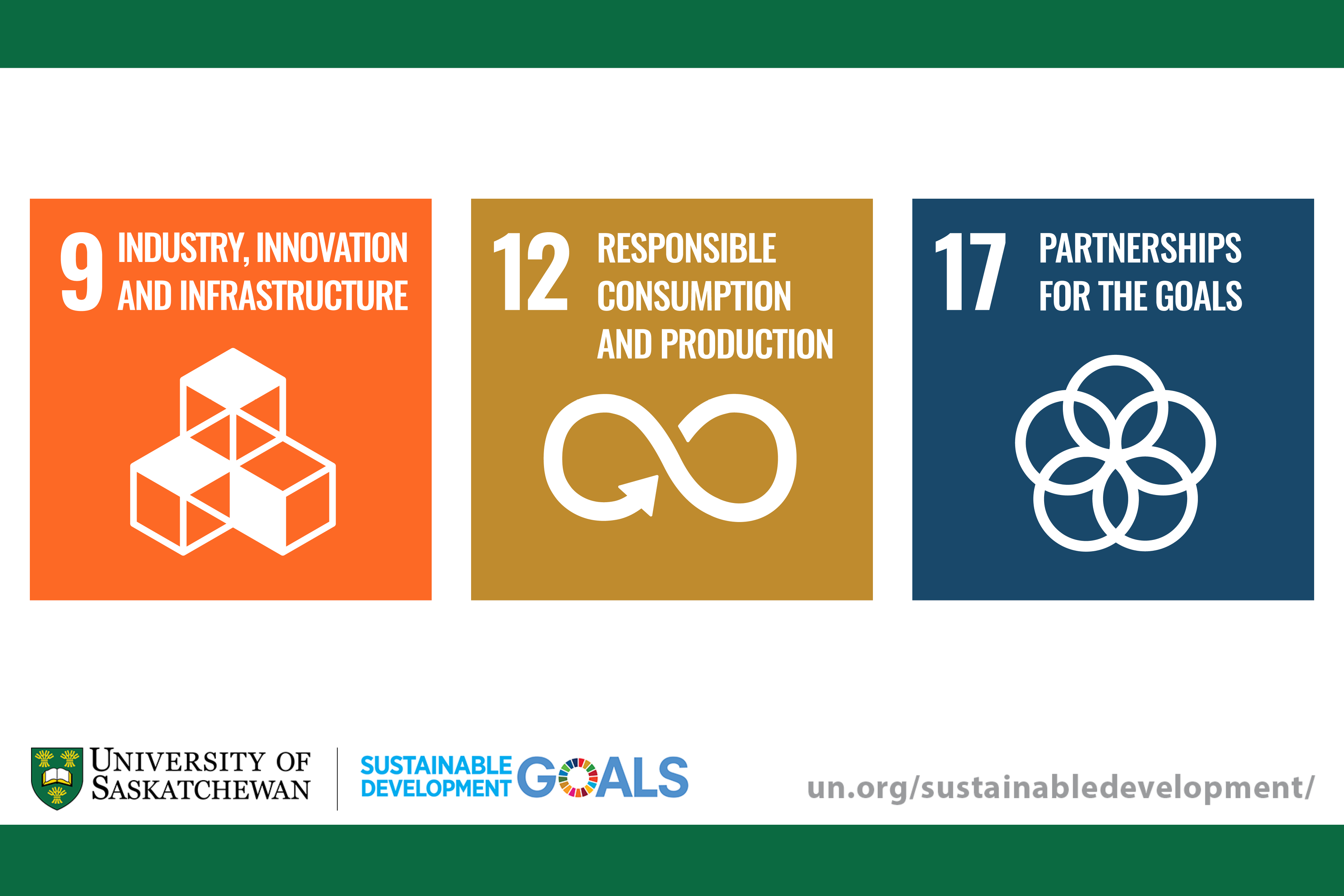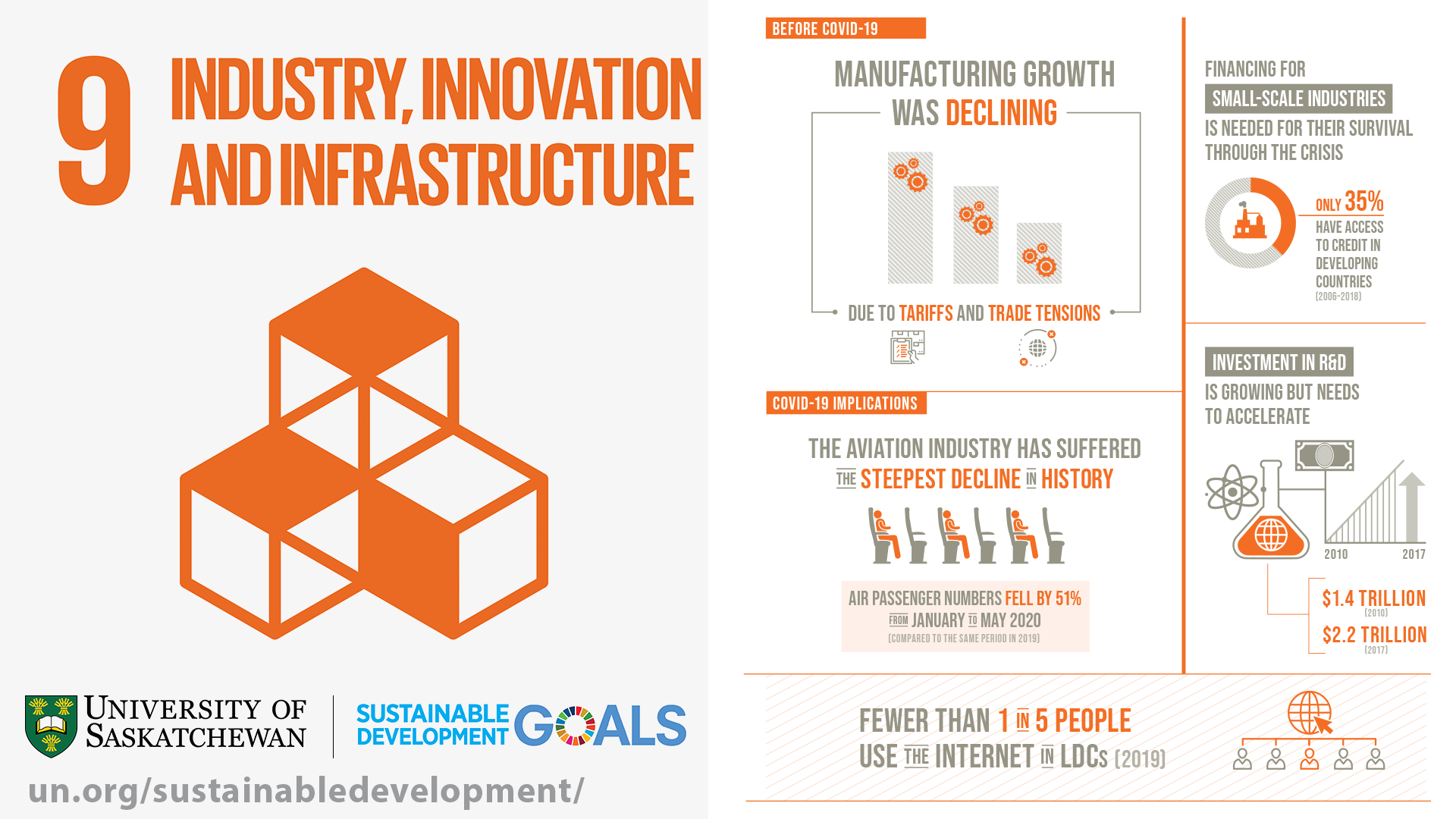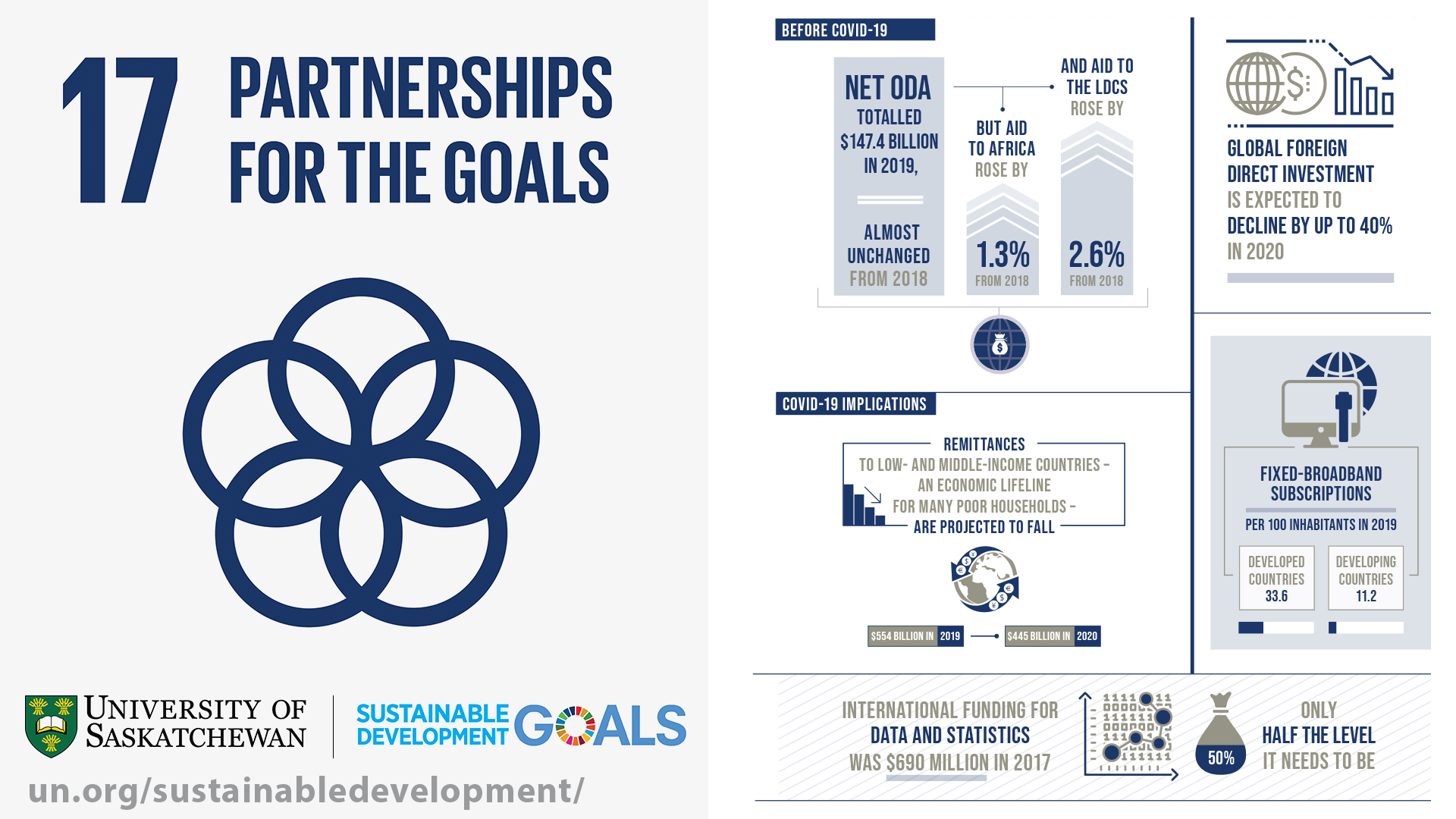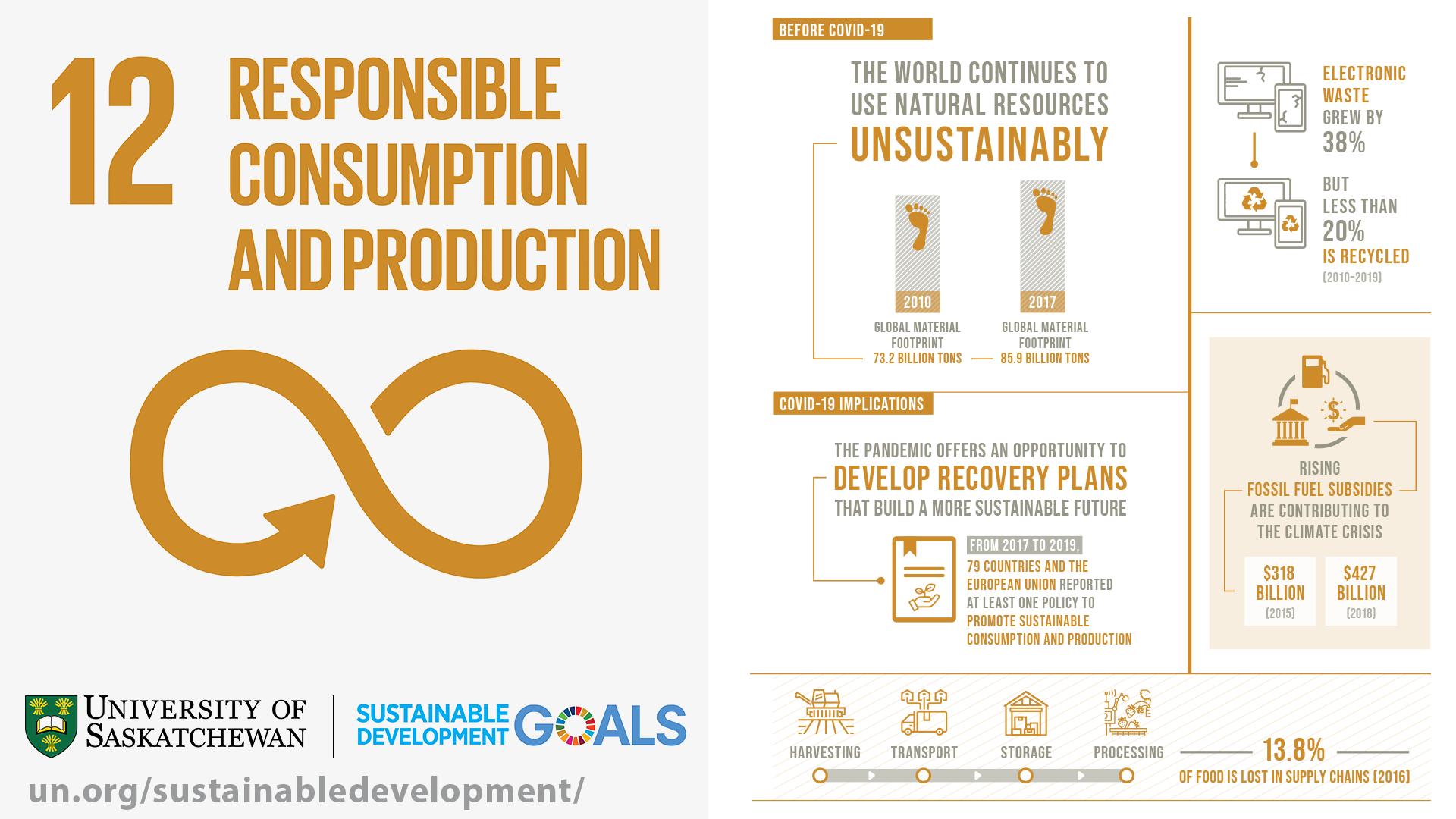
SDG Spotlight: Goals 9, 12, and 17
Build resilient infrastructure, promote sustainable industrialization and foster innovation. Ensure sustainable consumption and production patterns. Revitalize the global partnership for sustainable development.
Information and communication technologies have been on the frontlines of the COVID-19 response. The crisis has accelerated the digitalization of many businesses and services, including teleworking and video conferencing systems in and out of the workplace, as well as access to healthcare, education and essential goods and services.
As the pandemic reshapes the way in which we work, keep in touch, go to school and shop for essentials, it has never been more important to bridge the digital divide for the 3.6 billion people who remain offline, unable to access online education, employment or critical health and sanitation advice. The 2020 Financing for Sustainable Development Report provides policy options to harness the potential of digital technologies.
Once the acute phase of the COVID-19 crisis is over, governments will need investments in infrastructure more than ever to accelerate economic recovery, create jobs, reduce poverty, and stimulate productive investment.
The World Bank estimates that developing countries need to invest around 4.5 per cent of GDP to achieve the Sustainable Development Goals and at the same time limit global warming to no more than 2 degrees Celsius.
The current crisis is an opportunity for a profound, systemic shift to a more sustainable economy that works for both people and the planet.
The emergence of COVID-19 has underscored the relationship between people and nature and revealed the fundamental tenets of the trade-off we consistently face: humans have unlimited needs, but the planet has limited capacity to satisfy them. We must try to understand and appreciate the limits to which humans can push nature, before the impact is negative. Those limits must be reflected in our consumption and production patterns.
COVID-19 can be a catalyst for social change. We must build back better and transition our production and consumption patterns towards more sustainable practices.
No country can overcome the pandemic alone. Global solidarity is not only a moral imperative, it is in everyone’s interests.
The UN Secretary-General issued a series of policy briefs that lay out a vision for how the international community can deliver an effective, coordinated response to COVID-19, ensuring we keep the most vulnerable populations front and centre. The policy briefs bring together analysis from across the UN system and provide Member States with concrete ideas for how to address the consequences and even seize opportunities in the midst of the crisis.
A high-level event convened by Canada, Jamaica and the United Nations on 28 May brought together governments and international organizations to sharpen and accelerate our global response to the significant economic and human impacts of COVID-19, and advance concrete solutions to the development emergency.
Most developing countries do not have sufficient domestic resources and fiscal space to fund adequate COVID-19 response and recovery measures. International cooperation and external finance are crucial.
Particularly alarming is the prospect of a new debt crisis, compounded by tumbling prices for oil and other key commodities, heavily impacting Least Developed Countries that were already at high risk of debt distress. The UN is calling for Special Drawing Rights, targeted debt relief and an extension of the debt moratorium to all developing countries.
To address issues of open and timely access to critical data needed by governments and all sectors of society to respond to the global COVID-19 crisis, this UN portal provides a space for the global statistical community to share guidance, actions, tools and best practices to ensure the operational continuity of data programmes by National Statistical Offices.
To combat the growing scourge of COVID-19 misinformation, the UN launched Verified, an initiative to increase the volume and reach of trusted, accurate information on three themes: science (to save lives), solidarity (to promote local and global cooperation), and solutions (to advocate for support to impacted populations).
SOURCE

Download the PDF "WHY IT MATTERS: INDUSTRY, INNOVATION, AND INFRASTRUCTURE"
Download the PDF "WHY IT MATTERS: RESPONSIBLE CONSUMPTION AND PRODUCTION"

Download the PDF "WHY IT MATTERS: PARTNERSHIPS"


